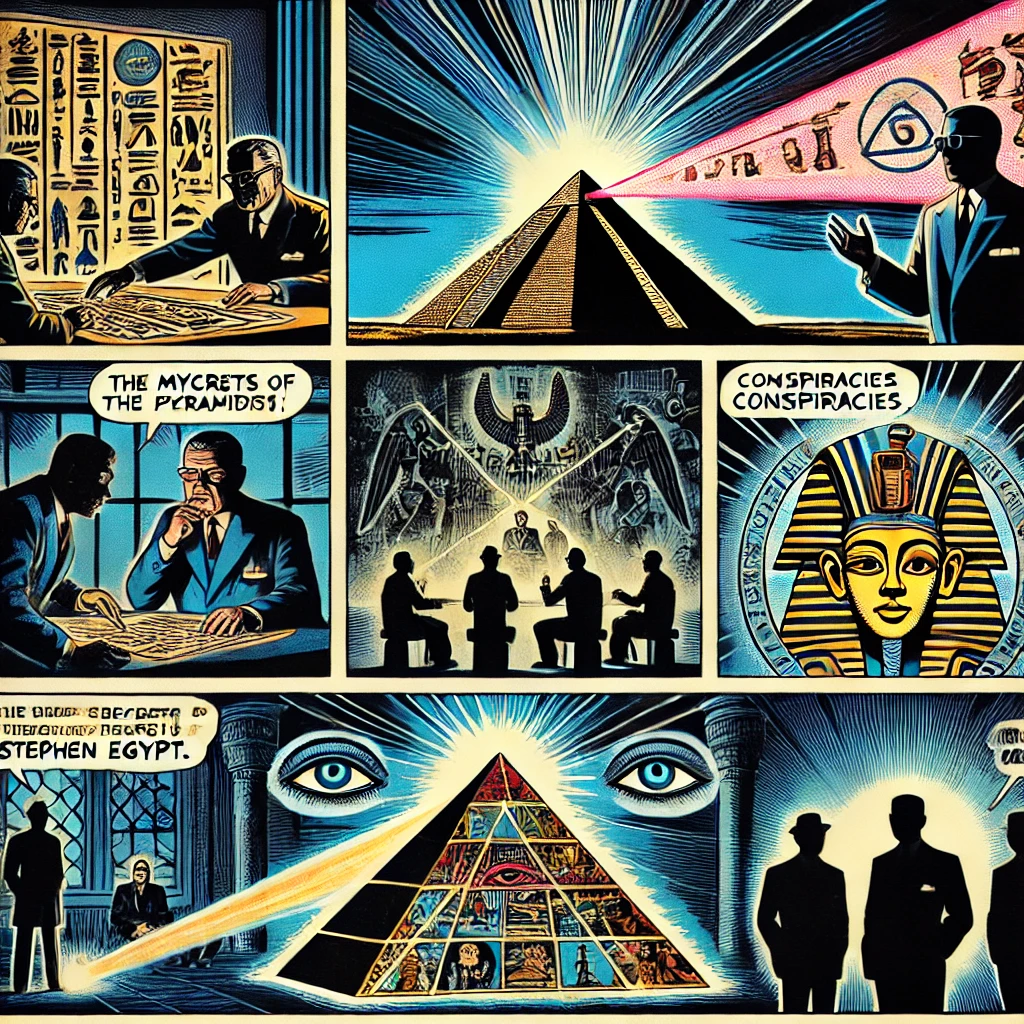Things Egyptologists will not say Pyramids Conspiracies Stephen Mehler
https://www.youtube.com/watch?v=8v09hvdra1A
Stephen Mehler is an alternative Egyptologist and author known for his unconventional theories about ancient Egypt and the pyramids. He has written extensively on topics such as ancient Egyptian spirituality, the origins of the Sphinx, and the construction techniques of the pyramids. Mehler’s work often challenges mainstream Egyptology and explores alternative interpretations of archaeological evidence.
In his writings and lectures, Mehler discusses various topics that he believes mainstream Egyptologists may overlook or downplay. Some of these topics include:
1. Spiritual and Mystical Practices: Mehler explores the spiritual and mystical aspects of ancient Egyptian culture, including the role of initiatic traditions, shamanic practices, and esoteric knowledge in Egyptian spirituality. He suggests that these aspects are often neglected or misunderstood by mainstream Egyptologists.
2. Alternative Construction Theories: Mehler proposes alternative theories about the construction techniques of the pyramids, including the use of sound and resonance, advanced mathematics, and lost technology. He suggests that mainstream explanations for pyramid construction may not fully account for the precision and complexity of these ancient monuments.
3. The Origins of the Sphinx: Mehler investigates the origins and purpose of the Great Sphinx of Giza, challenging conventional theories about its construction and dating. He explores the possibility that the Sphinx predates the Egyptian civilization and may have been built by a prehistoric culture with advanced knowledge and technology.
4. Connections to Other Cultures: Mehler explores connections between ancient Egypt and other cultures around the world, including ancient Mesopotamia, India, and South America. He suggests that there may have been cultural exchanges and influences that mainstream Egyptologists have overlooked.
5. Conspiracies and Cover-ups: Mehler discusses various conspiracy theories and allegations of cover-ups related to ancient Egypt, including claims of suppressed archaeological evidence and alternative interpretations of historical events. He suggests that there may be hidden truths about ancient Egypt that mainstream academia is unwilling to acknowledge.
While Mehler’s work has garnered interest among enthusiasts of alternative history and ancient mysteries, it has also been met with skepticism and criticism from mainstream scholars. Critics argue that Mehler’s theories lack empirical evidence and are not supported by rigorous scientific methods. Despite this, Mehler remains an influential figure in the field of alternative Egyptology and continues to promote his ideas through books, lectures, and educational programs.
“Things Egyptologists Won’t Say: Pyramids, Conspiracies” is a book or lecture by Stephen Mehler, an author, researcher, and Egyptologist known for his alternative perspectives on ancient Egyptian civilization and the construction of the pyramids. Mehler’s work often challenges mainstream interpretations and offers alternative theories based on his research and experiences in Egypt.
In “Things Egyptologists Won’t Say,” Mehler likely explores controversial topics and conspiracy theories related to ancient Egypt and the pyramids. Some of the themes he may address include:
1. Advanced Ancient Civilizations: Mehler may suggest that ancient civilizations, including the ancient Egyptians, possessed advanced knowledge and technology that allowed them to achieve architectural feats such as the construction of the pyramids. He may challenge the mainstream view that the pyramids were built solely through manual labor and primitive tools.
2. Suppressed Discoveries: Mehler may discuss the idea that there are hidden or suppressed discoveries in Egypt that challenge conventional narratives about the country’s history. This could include alleged cover-ups by Egyptologists or government authorities to conceal evidence of advanced ancient civilizations or extraterrestrial contact.
3. Esoteric Knowledge: Mehler is known for his interest in esoteric and spiritual teachings, particularly those associated with ancient Egyptian wisdom traditions. He may explore the spiritual significance of the pyramids and their connection to metaphysical concepts such as energy vortexes, sacred geometry, and consciousness.
4. Conspiracy Theories: Mehler may address various conspiracy theories surrounding the pyramids, such as claims of secret chambers, hidden treasures, or extraterrestrial involvement in their construction. He may offer alternative interpretations of archaeological evidence and historical records to support these theories.
It’s important to note that Mehler’s perspectives on ancient Egypt and the pyramids are considered controversial by many mainstream Egyptologists and archaeologists. While he provides thought-provoking insights and challenges conventional wisdom, his claims should be approached critically and evaluated based on the available evidence and scholarly consensus. Readers interested in alternative interpretations of ancient history may find Mehler’s work stimulating, but it’s essential to consider multiple viewpoints and sources of information when exploring such complex and contentious topics.
